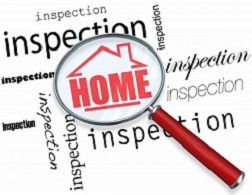Buying for Retirement: 3 Reasons Why You’ll Want to Buy Your Retirement Home Before You Retire
 Many people dream of buying their ideal retirement home after their career has come to a conclusion – with all that extra free time it seems like it’d be the most logical time to shop around.
Many people dream of buying their ideal retirement home after their career has come to a conclusion – with all that extra free time it seems like it’d be the most logical time to shop around.
However, many real estate professionals strongly recommend that their clients find a retirement property before they’re off the payroll. While it may seem like a big time commitment to find a new home while you’re still busy with your work there are several significant financial benefits to purchasing your retirement home before you actually do retire. Here are our top reasons why.
It Makes Your Mortgage Easy
When you are employed it is easier to get approved for a mortgage. If you wait until after you retire to buy your retirement home, you may not have the income require to qualify for the mortgage that you need. Don’t limit yourself! Buy while you’re still employed to keep your options open.
It Leaves You With More Spending Money
Buying a new home while you have an income provides you with more security with your expenses, such as mortgage payments and planned upgrades or renovations. Having an income can also mitigate financial stress should you run into any unexpected expenses after closing.
It Leaves You Ready For Reality
You may think you can accurately predict the expenses of your new home, but if you buy the property before retiring it gives you time to get to know the true amounts of your monthly payments. This can help ensure that you have enough saved to retire and live comfortably in your new property, with no surprises for your budget. You’ll be in a better position to create a financial plan once you know the reality of owning your new home.
An Added Bonus: It Can Be An Income Property
If you decide to purchase your retirement home before you retire you don’t have to move into it right away. You can rent it out as an income property until you’re ready to settle in, which will not only help cover mortgage payments but will also allow you to see first-hand what the monthly expenses are for the property.
This will also prevent you from having to deal with a move while working; you can wait until you do finally retire before packing up your current home and moving into your new one.
Contact your trusted mortgage professional today for more advice to set yourself up for the future.

 One of the stresses of moving to a new area is giving up the familiarity that you have with your old neighbors and starting from scratch. Whether you’ve just moved to a different locale or you’re planning to relocate in the near future, there are some easy ways that you can make a home of your new neighborhood right from the start.
One of the stresses of moving to a new area is giving up the familiarity that you have with your old neighbors and starting from scratch. Whether you’ve just moved to a different locale or you’re planning to relocate in the near future, there are some easy ways that you can make a home of your new neighborhood right from the start. Many millennials are expected to enter the housing market in the next year with the interest rates still low. However, while it may be a good time, it does not necessarily mean that it’s the right time for you to make the investment. If you’re currently weighing your options when it comes to home ownership, here are some things to consider before you decide put the money down.
Many millennials are expected to enter the housing market in the next year with the interest rates still low. However, while it may be a good time, it does not necessarily mean that it’s the right time for you to make the investment. If you’re currently weighing your options when it comes to home ownership, here are some things to consider before you decide put the money down. There’s a whole lot to learn when buying one’s first home, an investment that can bring joy, but sometimes, grief. A competent real estate agent can assist in locating those homes that meet the home buyer’s needs and can advise on factors such as market value of the home and neighborhood services. The agent will help the buyer through the negotiation and purchase process. But the buyer should take responsibility to make sure that the steps below are taken.
There’s a whole lot to learn when buying one’s first home, an investment that can bring joy, but sometimes, grief. A competent real estate agent can assist in locating those homes that meet the home buyer’s needs and can advise on factors such as market value of the home and neighborhood services. The agent will help the buyer through the negotiation and purchase process. But the buyer should take responsibility to make sure that the steps below are taken. Are you thinking of buying a new home this spring or summer? If so, you’re not alone. Many thousands of individuals and families alike will become homeowners this year. Whether you’re a first-time buyer or a seasoned veteran of the housing market, you probably know there are significant choices to make. One of the big decisions you will have to ponder is how much you want to invest in your down payment.
Are you thinking of buying a new home this spring or summer? If so, you’re not alone. Many thousands of individuals and families alike will become homeowners this year. Whether you’re a first-time buyer or a seasoned veteran of the housing market, you probably know there are significant choices to make. One of the big decisions you will have to ponder is how much you want to invest in your down payment.